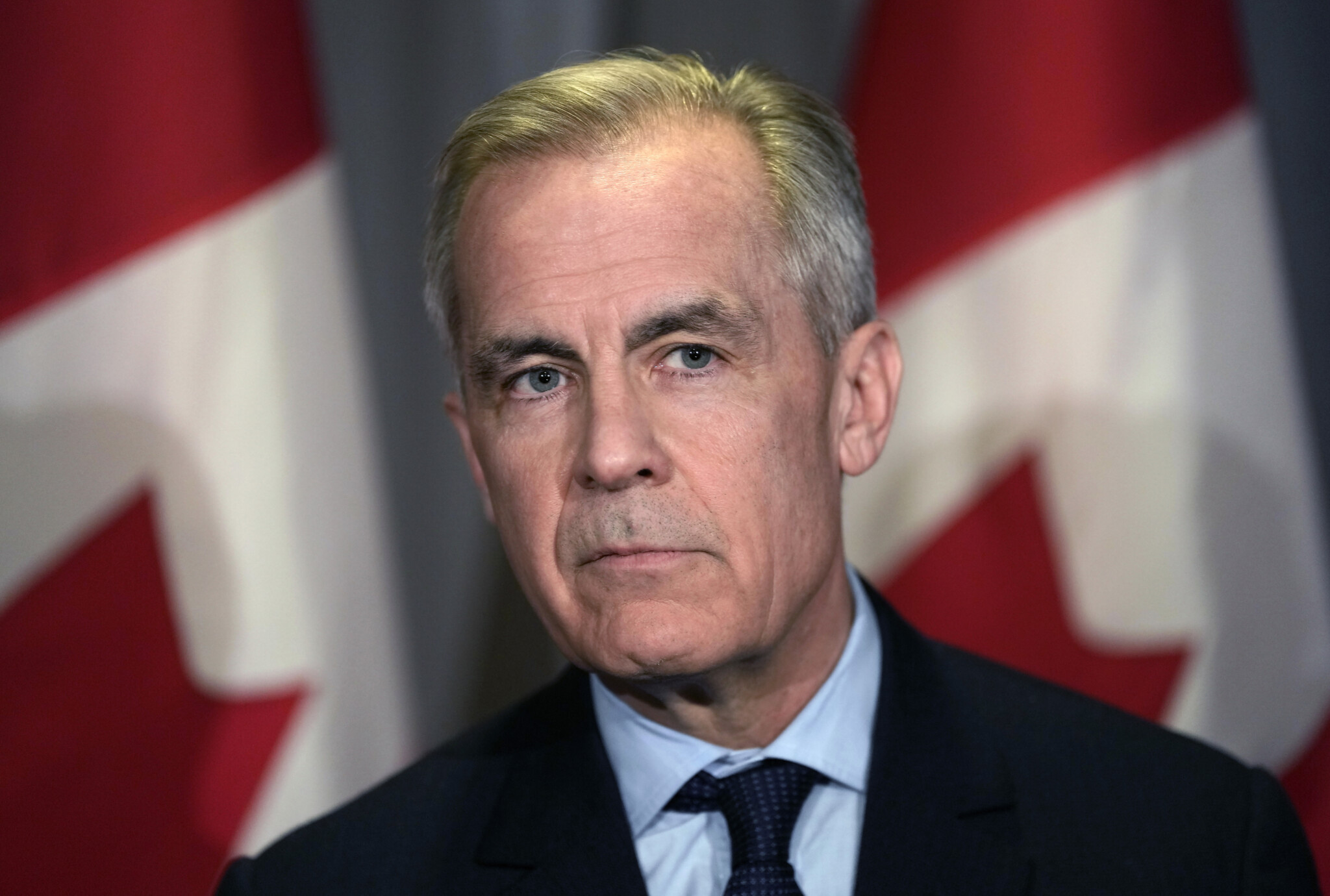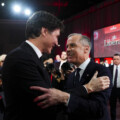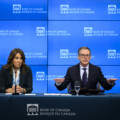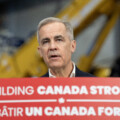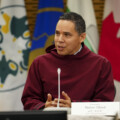In choosing to stand by Markham-Unionville Liberal incumbent candidate Paul Chiang for as long as he did, Mark Carney attracted all the wrong type of attention to his rising campaign—and, with Chiang’s sudden late-night resignation, it’s now apparent he burned all kinds of all-too-valuable credibility. And quite unnecessarily too.
To recap: speaking to Chinese-language media in January, Chiang had urged supporters to surrender the Conservative candidate in nearby Don Valley North (yes, that DVN!), Joe Tay, to the People’s Republic of China consulate to collect a reward. Only a month prior, in December 2024, Hong Kong police had issued a bounty of $1 million HK (roughly $184,000 CAD) and an arrest warrant for Tay for his role in promoting democracy and free speech in that region.
Chiang’s comments rightly sparked a furore, with prominent members of the Conservatives, spokespersons for the Chinese diaspora community, and academics engaged in foreign interference work calling upon Carney to end Chiang’s candidacy and expel him from the Liberal Party. Chiang then backpedalled, apologizing to Tay, Carney, and members of the Chinese diaspora community for comments that he admits “were deplorable and a complete lapse of judgement.”
This mea culpa appeared to be good enough for Carney, who pointed to Chiang’s quarter century of community service as an area police officer and the fact that he has family in HK as reasons enough to approach the outrage as a “teachable moment.” Not good enough for Tay himself, however, who said he views the statements as an effort to lever the PRC’s desires to intimidate him and other vocal opponents out of electoral politics and public life. Nor good enough for advocacy groups like Hong Kong Watch either, who requested the RCMP to look into the matter—and the Mounties promptly took up the case.
Yet, on Monday afternoon, Carney defiantly declared that Chiang still had his confidence—and all for naught. By late Monday night, Chiang was announcing his intention to bow out of the race.
Will the initial stonewalling on the outrage of Tay, the CPC, segments of the Chinese diaspora community, and experts who obsessively follow foreign interference pierce Carney’s soaring ambitions to become prime minister?
While the right decision was ultimately made, the chances for significant lasting damage to the Liberal campaign are still high, for three reasons.
First, in invoking the language of “teachable moment,” Carney drew a line of connection back to the breathy phrasing and responsibility-minimizing language of his unpopular predecessor, Justin Trudeau. Trudeau himself used the phrase when apologizing for his own “lapses in judgement” to appear in black and brownface too many times to specifically number by memory. Not a good rhetorical tack, in other words, for a Carney campaign that is dependent upon selling the brand of Liberal renewal.
Second, the incident returns voters’ minds to the scene of the initial foreign interference crash, Don Valley North. Voters will recall that it was CSIS agent leaks relating to the 2019 nomination of Han Dong in that very riding—and then-prime minister Trudeau’s handling of that information—that led the Liberals being dragged by the Opposition—after a detour through the farcical process of the special rapporteur—to a formal judicial inquiry into foreign interference.
That inquiry wrapped only in late January of this year. Its report took a year of testimony from over 150 witnesses and the review of thousands of sensitive documents at a cost of tens of millions of dollars to produce. Over 800-odd pages, the report spoke damningly of foreign interference in Canada’s political process not only in general terms, but also took pains to stress the depth of the scourge of foreign intimidation, abuse, and mistreatment of diaspora communities here in Canada. It jabbed at Trudeau for doing too little to follow up on CSIS’s concerns, and it swiped at Conservative leader, Pierre Poilievre, for refusing to get the security clearance he needed to hear all intelligence relating to the inevitable efforts of hostile states to meddle in his own party.
Was the trainwreck leadup and subsequent inquiry not a sufficient “teachable moment” to instruct those who aspire to continue to hold elected office that loose words around turning fellow citizens in to hostile ideological states would be a disqualifying offence? That bell shaking faith in Chiang can never be unrung for communities who have good reason to fear Beijing, New Delhi, and Tehran. With the inquiry’s tome in hand, and its process recalled by Chiang’s utterances, it seems unlikely voters will dismiss Chiang’s behaviour as a simple lapse in judgement and possibly look to punish a party that appears slow to have learned from its previous inquiry admonishments.
Third is the context of the post-inquiry world. In the past weeks, Canadians have learned of the execution of at least four fellow nationals in the opening months of 2025 by the PRC on Chinese soil. We have been told of the efforts of the government of India to boost the leadership bid of Poilievre, which did not affect the outcome. We have seen a sitting Liberal member of Parliament for Nepean, Chandra Arya, disqualified first from the Liberal leadership contest (which Carney won) and then punted from his own nomination (which Carney assumed) over concerns about Arya’s visit with (and potential ties to) the government of India.
The appearance of reluctance in the handling of yet another foreign interference irruption—wherein notions of national duty are apparently expected to take a back seat to the various electoral needs of the LPC and its leader, until such a position remains politically untenable—will not please voters who are looking to Carney to turn the page on a decade of Liberal ethical scandals.
As a tall forehead obsessed with foreign interference, it is possible I am projecting my frustrations about Liberal flippancy on the issue onto the intentions of Canadian voters. But the entire episode does provide ample opportunity for voters to question the Liberal Party’s judgement, let alone its ethics.
For starters, if Chiang dropping out was always going to be the eventual outcome, why speak so forcefully in defence of the indefensible? Why wait to make this move, allowing several days of uninterrupted bad coverage to overshadow your signature housing announcement? Why breathe so much life into a Conservative campaign faltering out of the first week?
It remains to be seen if Carney’s apparent march to a majority has enough momentum to clear what was an unforced error. One thing, however, is certain. By not taking decisive action to boot Chiang to the political wilderness before it became a scandal, Carney missed a golden opportunity to draw a thick line between his own decisive handling of foreign interference with the cravenness of Trudeau and the caginess of Poilievre. He may soon regret it.
